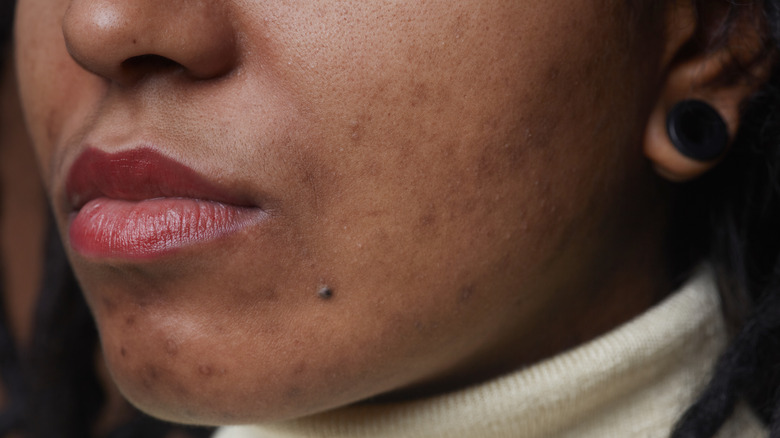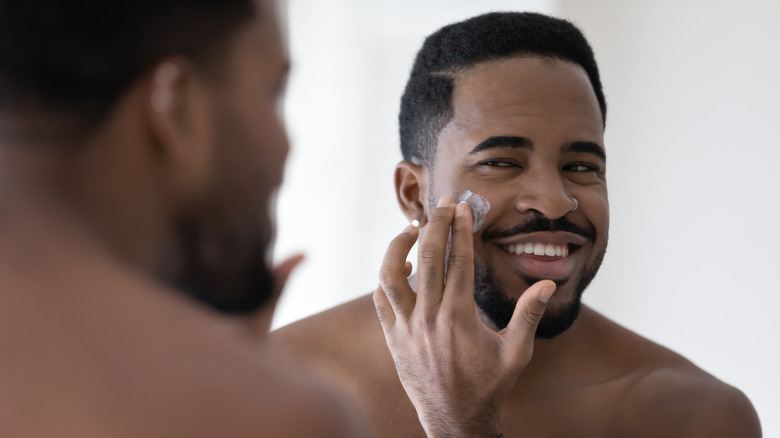This Is What Really Causes Hormonal Acne
If you thought acne was a problem reserved for teenagers, think again. Breakouts are already a pain as it is. Having to deal with the issue as an adult can be particularly frustrating. If acne has been a problem for you, the good news is that you're not alone. Adult acne is actually pretty common.
According to the American Academy of Dermatology Association, about 50 percent of women in their 20s and 25 percent of women in their 40s have acne. In fact, Cleveland Clinic reported that acne can affect men and women alike into their 50s. Acne that affects adults is referred to as hormonal acne and it can appear anywhere from your forehead to your chest and even your ears, among other areas.
Let's explore what causes hormonal acne in adults (because, clearly, it's not puberty), the symptoms of hormonal acne, and how to get rid of it — hopefully, for good.
How to Recognize and Treat Hormonal Acne
According to Harvard Health, the reasons for hormonal acne in adults can be similar to the reasons for acne in teenagers. It all boils down to four primary factors: overproduction of oil, clogged pores, bacteria, and inflammation. Both your daily lifestyle and factors outside of your control can contribute to any one of these factors. Stress, menstrual cycles, makeup, diet, and even losing or gaining weight can cause hormonal acne.
Columbia Skin Clinic shared that symptoms of acne include whiteheads, blackheads, papules, pustules, cysts, and nodules. Typically, whiteheads and blackheads aren't painful. If you notice any signs of inflammation or redness, that's a sign that it's something other than whiteheads and blackheads. In addition to inflammation and redness, another indicator of your type of acne is how it feels. If it's tender or sore, then it may be cysts or pustules.
There are several ways to treat hormonal acne, per Self. Using an over-the-counter cleanser with salicylic, lactic, or glycolic acid may be a good place to start. Topical retinoids and moisturizers specifically for acne-prone skin can also help. If your acne isn't clearing up or if it's getting worse, making an appointment with a dermatologist who can point you in the right direction is always ideal.


